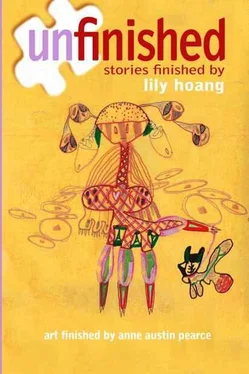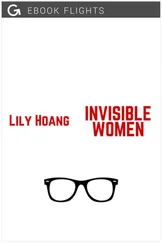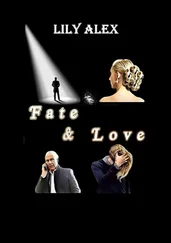Lily Hoang - Unfinished - stories finished by Lily Hoang
Здесь есть возможность читать онлайн «Lily Hoang - Unfinished - stories finished by Lily Hoang» весь текст электронной книги совершенно бесплатно (целиком полную версию без сокращений). В некоторых случаях можно слушать аудио, скачать через торрент в формате fb2 и присутствует краткое содержание. Издательство: Jaded Ibis Press, Жанр: Современная проза, на английском языке. Описание произведения, (предисловие) а так же отзывы посетителей доступны на портале библиотеки ЛибКат.
- Название:Unfinished: stories finished by Lily Hoang
- Автор:
- Издательство:Jaded Ibis Press
- Жанр:
- Год:неизвестен
- ISBN:нет данных
- Рейтинг книги:5 / 5. Голосов: 1
-
Избранное:Добавить в избранное
- Отзывы:
-
Ваша оценка:
- 100
- 1
- 2
- 3
- 4
- 5
Unfinished: stories finished by Lily Hoang: краткое содержание, описание и аннотация
Предлагаем к чтению аннотацию, описание, краткое содержание или предисловие (зависит от того, что написал сам автор книги «Unfinished: stories finished by Lily Hoang»). Если вы не нашли необходимую информацию о книге — напишите в комментариях, мы постараемся отыскать её.
Unfinished: stories finished by Lily Hoang — читать онлайн бесплатно полную книгу (весь текст) целиком
Ниже представлен текст книги, разбитый по страницам. Система сохранения места последней прочитанной страницы, позволяет с удобством читать онлайн бесплатно книгу «Unfinished: stories finished by Lily Hoang», без необходимости каждый раз заново искать на чём Вы остановились. Поставьте закладку, и сможете в любой момент перейти на страницу, на которой закончили чтение.
Интервал:
Закладка:
And then he knew Ruth loved him, even if she could not say it herself.
Of all of this, Naomi knew nothing. That morning, Boaz had handed her a wad of cash and told her to visit the ocean for a few days of relaxation and pampering. He had not specified which ocean, which gave Naomi free reign. For months, she’d been feeling a steady suffocation. She wanted to run away. She was tired of Ruth and her antics. She was tired of being treated like some cheap whore, and even though Boaz would never treat a woman this way Naomi often found herself wondering whether he thought of her more as mother or mistress.
To Ruth, she was a perpetual mother. To Boaz, she was a mistress on demand. It had grown so hard for her to play chameleon constantly.
So, the morning that Ruth locked herself in her closet, Naomi packed her bags and had the chauffeur take her as far away from land as he could. She knew nothing. That morning, Naomi unfettered.
Because Ruth would not come out, Boaz brought food to her, and together, in the closet, they picnicked over sweaters and scarves. In those dark, tight confines, Ruth talked constantly, openly, about everything except the reason why she refused to re-enter the world. For three days, the married couple stayed hidden in Ruth’s closet. The servants came and went with food, water, wine, fresh clothes. Only occasionally, Boaz would have to take a business call of the utmost importance, but Ruth remained nuzzled at his side so he could not consider it work. Hidden in Ruth’s closet, Boaz believed that he was truly the luckiest man in the world.
But soon they would have to emerge. Both Ruth and Boaz understood this.
After three days Ruth opened the closet door, crawled out, and stretched her legs and spine several times before standing. Boaz, with sleep still sealing his eyes, motioned for her return. Then Ruth said, Boaz, I am with child. It is your child. I have not been unfaithful. I am your wife, and I will be the mother to your child .
Later Boaz would come to understand what an occasion this was, but right then he merely responded, I love you .
Of course, Ruth was disgusted by this cliché, but she whispered, lightly, into his ear, I love you too, Boaz .
Then she divested herself and offered Boaz her virginity.
She took a picture of the spots of blood on her sheets, and her husband engraved the placard.
Together, they taped it to the back of the plastic frame and kept it hidden in a locked drawer, lest Naomi came snooping, as she inevitably would.
The day Naomi returned from her visit to the ocean, she was no longer mistress. That day, she learned of all she had missed. That day, she sighed to herself, Grandmother .
Because she can no longer be mistress or mother, Naomi asked to name the child.
Ruth had been partial to the name Bernard. Boaz had preferred Pauline or Harold.
But the day Ruth gave birth to a healthy baby boy, they held up the child to Naomi who clearly and articulately said, Obed .
And so Ruth begat Obed, who begat Jesse, who begat David — David who would become the greatest of kings.
the whore’s machine (from Debra Di Blasi)
Or else: Where is the line in the dust across which we dare not step?
Assuming: There is a line in the dust, and we dare not step across it.
Assuming: We think collectively.
“This life,” she says, as if so sure of another, “takes it out of you.”
That’s it. That “it.” That perpetually reappearing it to which we’re obliged.
Oblige isn’t the right word. Honor. We meant: That perpetually reappearing it in which we honor. Yes, that’s much fitting.
Suffice to say: she is not part of us.
We challenge her, “If you see the line, step across it.”
Here is what separates her from us: dissatisfaction (we feel none); obligation (she feels none); and her ability to see the line in the dust across which we dare not step.
It is unfair that she is the one who can see the line that we cannot see.
Her bones crack and crust. Her blood is full of mold. Here, there is injustice.
Our life is not difficult. She is the only one among us to think it is.
She does not belong with us. She brings us down. Our life does not — as she laments — “take it out of you.” And even if it does, the it that our life takes out needs to be extracted. When it is extinguished, we function. We produce. It is our savior.
We have no formal name for it, but we all know the power of it . Our scholars once tried to give it a title beyond such a vague pronoun, but no word seemed adequate. The replacement words did not glide through our tongues in the necessary manner. When we attempted to swallow these replacement words, we spit them back up whole, no matter how much time had elapsed. When we took these replacement words to be dissected, they refused separation. We could not even learn what made these particular replacement words inadequate.
So we decided by consensus to continue using “it.”
We believe it refuses to be named.
We respect what it desires. We do not struggle against it .
Once, a very long time ago, long before we were able to manipulate our bodies to consume words instead of grains and leafy vegetation, long before our philosophy became sophisticated, a woman came to us and bartered. The woman offered us a machine that could translate work into a hardened material, which we could then use as a medium to trade goods and services.
We called her: villain, cunning deceptress, whore. Now, she is known simply as the whore.
But, in the end, we purchased her machine.
In exchange she asked us for a certain amount of land. She took a stick and dragged it around the outskirts of our country. In truth, she did not ask for much land, no more than an acre or two. She left us two ports along the ocean and three entry points to lead us to adjacent countries.
She asked that we never enter her land, no matter what beauties and promises we see.
This seemed fair. Our foremothers and fathers entered into a verbal contract with the whore.
But it has been centuries since the time of the contract. The line the whore drew is no longer visible, yet we must honor it.
This has never been problematic. In fact, if anything, we continue to migrate towards the interior, folding in upon ourselves, building up instead of out, so that we do not disturb her. We do not mind this. It is what is necessary.
It has been so long since the time of the whore. Why do we still fear her and her line?
Assuming: The whore or her begotten still exist.
Assuming: It is out of fear that we do not cross the line.
When she who does not belong speaks, we hate her. We want her to disappear. We want to offer her to the whore, even though the whore has never asked for sacrifices.
Or: Why do we hate she who does not belong?
Or else: Why does she who does not belong not belong here? Assuming: We do hate her.
Assuming: She indeed does not belong.
We do not know how she who does not belong first came to us. We do not remember her being born, and we do not allow immigrants. Our borders are firmly secured, even along the edges of the ocean.
Although it is possible that she traveled across the whore’s land to arrive here. This would certainly make her a whore as well, for all those who have touched the whore’s land must also be whores.
There are those among us who claim to have raised her, bore her from their very vaginas, allowed her to suckle at their words. They are not to be trusted either, for we do not remember this. Our memory only accounts for her as a grown woman: one who does not appreciate our barter system; one who complains perpetually and is malcontent constantly; one who we find crystalline in beauty.
Читать дальшеИнтервал:
Закладка:
Похожие книги на «Unfinished: stories finished by Lily Hoang»
Представляем Вашему вниманию похожие книги на «Unfinished: stories finished by Lily Hoang» списком для выбора. Мы отобрали схожую по названию и смыслу литературу в надежде предоставить читателям больше вариантов отыскать новые, интересные, ещё непрочитанные произведения.
Обсуждение, отзывы о книге «Unfinished: stories finished by Lily Hoang» и просто собственные мнения читателей. Оставьте ваши комментарии, напишите, что Вы думаете о произведении, его смысле или главных героях. Укажите что конкретно понравилось, а что нет, и почему Вы так считаете.






![О Генри - Неоконченный рассказ [An Unfinished Story]](/books/415443/o-genri-neokonchennyj-rasskaz-an-unfinished-story-thumb.webp)





